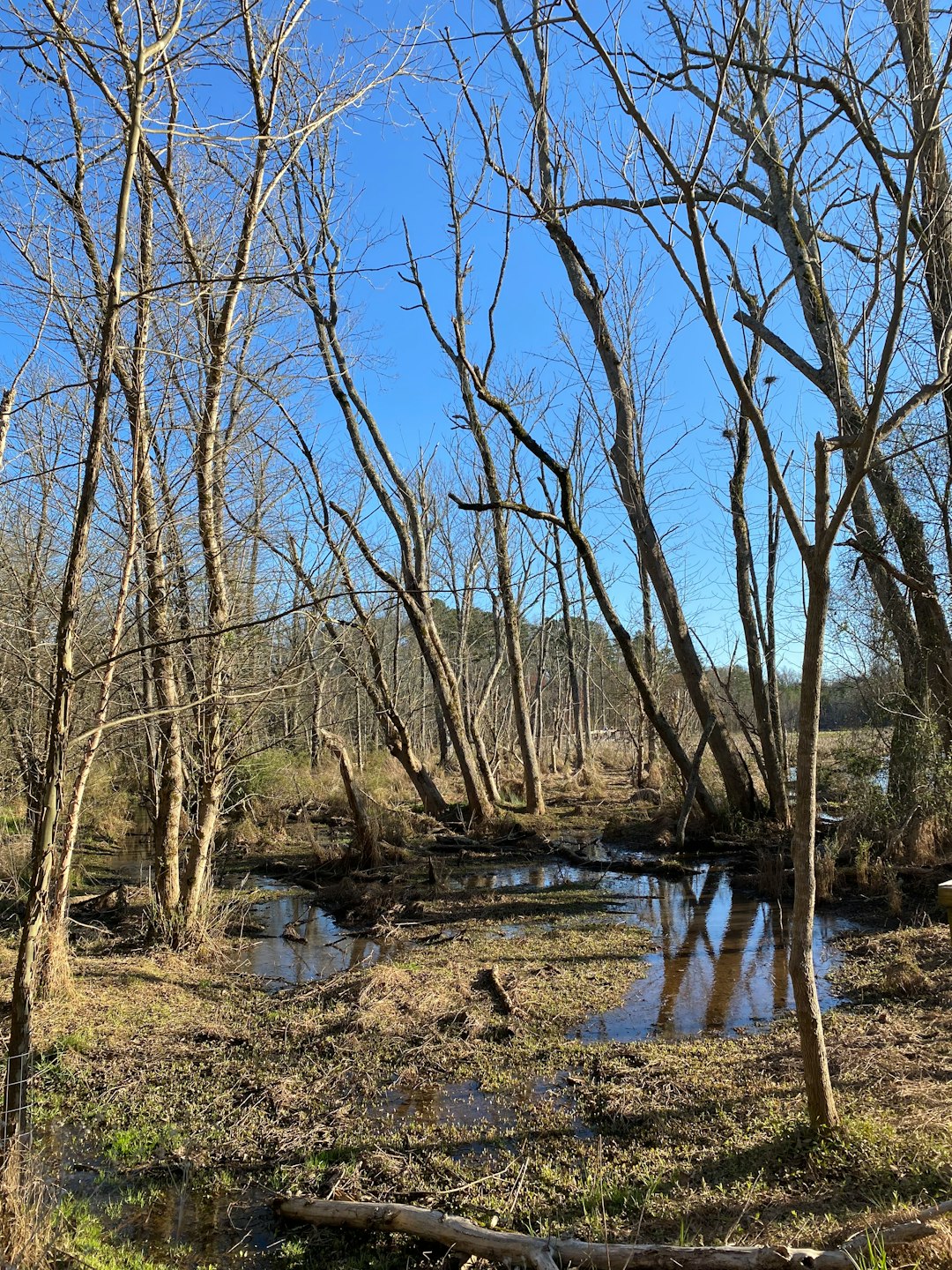

Grasping the ebbs and flows of Florida's real estate market is critical for any potential land buyer. The state's market is as complex as it is dynamic, influencing pricing, availability, and competition. To start, familiarize yourself with the current market trends, price points in different regions, and future growth projections. This intel is indispensable; it shapes your budgeting and can impact your decision to buy now or wait.
Moreover, the Florida market is marked by its seasons – with fluctuations often observed between peak tourist seasons and quieter times of the year. Recognize these patterns as they can affect land pricing and demand. Also, understanding the demographic shifts, such as the influx of new residents and tourism statistics, can offer a crystal-ball glimpse into where the market is headed and which areas may become the next hotspots.
Keep abreast of the developments in economic factors such as interest rates, employment rates, and the overall health of the state's economy. These can also have a direct bearing on the real estate scene, informing the timing of your purchase. An informed buyer is a powerful buyer, so due diligence in understanding Florida's real estate market cannot be overstressed.
Purchasing land in Florida is not just about selecting the right spot; it also involves a web of legal considerations. First among these is ensuring clear land title, as encumbrances can lead to costly disputes or restrictions in use. Engage a reputable title company or a real estate attorney to run a title search and provide title insurance, which will safeguard against any unforeseen claims to the property after purchase.
Zoning laws, easements, and covenants should also be reviewed thoroughly. Zoning regulations dictate land use and what can be built, while easements may grant rights to others over parts of your property. Both can significantly influence your land's utility. Covenants, conditions, and restrictions (CC&Rs) can also play a crucial role, especially in planned communities or subdivisions, affecting everything from the type of structures permitted to the colors you can paint them.
Evaluate tax implications and any outstanding liens or debts attached to the property that may transfer upon purchase. Being caught off-guard by these elements post-closure can introduce unforeseen financial burdens. Navigating these legal facets with precision is imperative for a smooth and stress-free acquisition process.

Selling Florida land for cash is a fairly straightforward process, but it does require some careful planning and consideration.. Whether you're looking to sell a small plot of land or a large parcel, there are several key steps you'll need to follow in order to successfully complete the transaction. The first step in selling Florida land for cash is to determine the value of your property.
Posted by on 2024-09-30

Selling Florida land for cash can be a lucrative and rewarding venture for many individuals.. There are several key benefits to selling land in this manner, including the immediate access to funds, the ability to avoid real estate agent fees, and the potential for a quick and hassle-free transaction. When selling land for cash in Florida, one of the most significant advantages is the speed at which the sale can be completed.
Posted by on 2024-09-20

Are you a Florida landowner looking to turn your property into cash quickly?. Whether you've inherited land, are ready to downsize, or simply want to liquidate your real estate assets, there are several options available to help you achieve this goal. One of the simplest ways to sell your Florida land is through a direct sale to a buyer or investor.
Posted by on 2024-09-20

Selling your Florida land for cash can come with a multitude of benefits that can make the process not only easier but also more lucrative for you as a seller.. One of the biggest advantages of selling land for cash is the quick and hassle-free transaction.
Posted by on 2024-09-20
When considering land in Florida, assessing both the current value and future investment potential is a balancing act that requires a strategic approach. A parcel's current value is influenced by its location, size, and usability, as well as market conditions. Utilize professional appraisals to get an unbiased assessment of the land's worth to ensure you're making a sound investment.
Thinking long-term, the investment potential of the land can be gauged through factors such as the area's development trajectory and planned infrastructure improvements. Areas poised for growth or those in the path of progress typically provide lucrative return potentials. Conversely, regions prone to market saturation or declining industries may not fare as well in the future. Analysis of historical data, coupled with projections for urban sprawl and community revitalization projects, should inform your investment rationale.
Also, understand that land itself can be a source of income through its natural resources or potential for agricultural leasing, which could beneficially impact your investment calculations. Therefore, enlisting the expertise of a seasoned real estate advisor who understands the subtleties of property investment is a pivotal step for any Florida land buyer.


Selecting the ideal location involves a critical examination of your personal or business needs against the backdrop of the various Florida landscapes. For residential buyers, factors such as school districts, neighborhood safety, and community amenities often take precedence. Conversely, commercial buyers may prioritize access to major roadways, proximity to supply chain nodes, and demographic suitability for their business model.
Also consider the nuanced aspects of each location - cultural vibrancy, economic stability, and the social climate of potential areas. An optimal location resonates not just with your practical requirements but also aligns with your lifestyle or brand ethos. Additionally, delve into local development plans - areas slated for improvements or those under conservation orders can materially affect your decision.
Fine-tuning your location choice should be a deliberate process. After all, the adage 'location, location, location' holds particularly true in the context of real estate. A systematic approach that weighs each factor against your long-term plans will stand you in good stead as you refine your selection.
Understanding environmental factors and their implications on land use in Florida are essential for responsible and compliant property management. The state's diverse environments, from wetlands to coastal dunes, come with a set of regulations aimed at conserving natural habitats and ensuring sustainable development. Initial environmental assessments and even more in-depth studies like Phase I Environmental Site Assessments (ESA) may be necessary to uncover any previous land uses that could restrict current or future development.
Be cognizant of flood zones, as these areas come with insurance considerations and potential building restrictions. Equally, be alert to endangered species habitats, which can impose limitations on land alterations. Compliance with the Florida Environmental Protection Act and engagement with local environmental agencies will aid in deciphering the lay of the land from an ecological standpoint.
Additionally, climate change poses new challenges and threats, such as sea-level rise and increased hurricane activity. These environmental factors must be incorporated into your land use and development plans. Prospective buyers should not only contemplate the short-term appeal of a property, but also its resilience and adaptability in the face of environmental changes.


Building and development in Florida are governed by a combination of state statutes, local ordinances, and, in some instances, federal law. Prospective land buyers need to be intimately familiar with these restrictions to ensure that their visions for the property can be realized. Familiarize yourself with the Comprehensive Plan for the area – a document outlining long-term land use, conservation, and development policies.
Building codes and permitting rules will determine structural guidelines and the approval process for new construction. This is essential knowledge to avoid setbacks during the development phase. For properties within designated historic districts or coastal areas, additional layers of scrutiny and regulation apply to protect the integrity and sustainability of these environments.
Furthermore, for subdivided lands or within community associations, be prepared to adhere to a stricter set of architectural guidelines and review procedures. Knowing these restrictions in advance can save you from investing in land that ultimately cannot serve your intended purpose.
To close the deal on Florida land with minimal hassle, a comprehensive and measured strategy is imperative. Once the ideal parcel has been selected, initiate the process with a thorough review of the contract terms. This document encapsulates all the nuances of the purchase arrangement, and professional guidance here is invaluable.
The closing process involves a series of steps, including securing financing, meeting contingencies outlined in the contract, conducting a final property inspection, and obtaining necessary insurance. Transparent communication with the seller and the involvement of a knowledgeable real estate attorney can streamline these stages toward the final exchange of deeds.
Lastly, ensure all necessary payments, including closing costs, are accounted for and that the funds are ready for transfer. Buying land can be a formidable undertaking, but with the right preparation and support, your acquisition can proceed without a glitch, leading you to your very own piece of Florida paradise.
In summary, Florida offers a plethora of opportunities for those looking to purchase land. However, the golden allure of the Sunshine State also brings forth unique challenges and considerations. By thoroughly exploring these avenues – from market trends and legalities to environmental policies and financing – prospective buyers can navigate these waters with confidence. The dream of owning a piece of Florida is well within reach for those equipped with knowledge, patience, and a penchant for due diligence. Start your journey today, and soon enough, you may just witness those dreams taking root in the fertile Floridian soil.

Consult with a tax professional to understand any potential tax consequences of selling your Florida land for cash, including capital gains taxes and deductions.
Consider marketing strategies such as online listings, signage on the property, and networking with real estate professionals to attract potential buyers for your Florida land.
Clean up the property, make necessary repairs or improvements, stage the land if possible, and highlight any unique features or advantages to increase its perceived value before listing it for sale.
The timeline can vary but typically ranges from a few weeks to a few months depending on market conditions and buyer interest in your property.